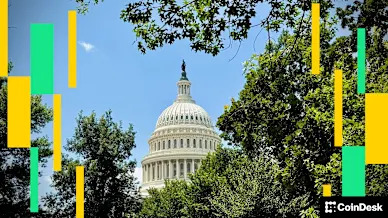State of Crypto: What Happens to Crypto if Government Shutdown Lingers
- October 4, 2025
- Category:

The U.S. government shut down this past Wednesday, furloughing any federal employees deemed non-essential and forcing the rest to work without pay (though they should receive backpay when the government is formally funded again). If the government reopens within the next few weeks, it shouldn't have too much of an effect on D.C.'s crypto policymaking. The longer the shutdown stretches, however, the more delayed crypto efforts will be.
You’re reading State of Crypto, a CoinDesk newsletter looking at the intersection of cryptocurrency and government. Click here to sign up for future editions.
Waiting for a reboot
The narrative
The government shut down on Wednesday, and at least as of press time, Democrats and Republicans do not appear to be close to a deal to reopen it.
Why it matters
As discussed in last week's newsletter , the immediate effects of the shutdown are pretty straightforward: Market structure legislation will likely be delayed, federal agencies' rulemaking will probably be delayed, and new spot crypto exchange-traded funds will not launch as many hoped in the coming days.
If the shutdown is just a few days — or potentially as long as two weeks — these efforts should resume pretty seamlessly. If the shutdown goes beyond that, the picture becomes much muddier.
Breaking it down
The longest U.S. government shutdown in history took place between December 2018 and January 2019, during President Donald Trump's first term. At the time, Democrats controlled the House of Representatives while Republicans controlled the Senate. This latest shutdown is only a few days old as of press time, and could last just a few days or may stretch on further.
Perhaps the most immediate and tangible effect of the government shutdown on crypto issues is on exchange-traded funds. The Securities and Exchange Commission was expected to allow ETFs tracking the prices of assets like Solana (SOL) and Litecoin (LTC) to launch this past week. While there was some movement last week and Monday, the clock ran out before all of the final paperwork could be pushed through, and the issuers have not yet been able to launch .
The SEC was able to finalize a pair of no-action letters prior to the shutdown as well. Other agencies, like the IRS, were similarly able to publish interim guidance prior to the shutdown.
Ron Hammond, head of Policy and Advocacy at Wintermute, told CoinDesk that, "It can't be understated how busy the crypto policy developments have been."
With the shutdown, policymakers are in limbo around these types of regulatory actions, he said.

